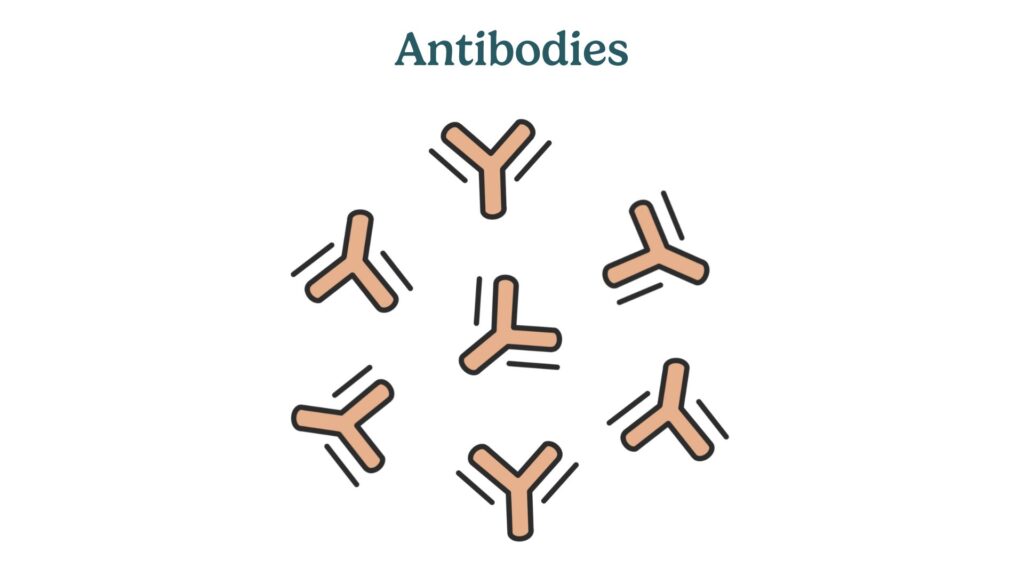antibodies

Antibodies
Antibodies are proteins produced by the immune system to help fight off infections. When you breastfeed, your body passes antibodies to your baby through your breastmilk. These antibodies play a crucial role in protecting your baby from illnesses, especially in the early months when their immune system is still developing. Breastmilk is rich in these protective antibodies, providing your baby with essential immune support.
What to watch out for
Understanding the role of antibodies in breastfeeding is important for ensuring your baby’s health. Here are a few things to keep in mind:
- Infections and Illnesses: If you get sick, your body will produce specific antibodies to fight off that infection. These antibodies will be passed to your baby through your milk, helping to protect them from getting the same illness. Keep breastfeeding even if you're feeling under the weather, as it's one of the best ways to support your baby's immune system. Learn more about breastfeeding while sick.
- Allergies: Sometimes, babies might react to something in your diet that is passed through your milk. This isn’t related to antibodies but knowing about it can help you identify and eliminate any allergens from your diet that might affect your baby.
- Vaccine Antibodies: If you receive vaccinations while breastfeeding, your body may produce antibodies that can be passed to your baby, offering them some level of protection against certain diseases.
If your baby shows signs of illness or an allergic reaction, such as a rash, diarrhea, or unusual fussiness, consult your pediatrician. Most issues related to antibodies and breastfeeding are beneficial, but it’s good to be aware and proactive about any potential problems.
Physical limitations or health circumstances
Certain health conditions or medications can affect antibody production or how antibodies are transferred through breastmilk:
- Immunodeficiencies: If you have an immune system disorder, your ability to produce antibodies might be compromised. This can affect the level of immune protection your baby receives through your milk.
- Certain Medications: Some medications can affect your immune system or milk supply. Always consult with your healthcare provider about any medications you're taking to make sure they are safe for breastfeeding.
- Chronic Illnesses: Conditions like HIV can affect breastfeeding practices. Mamas with HIV are generally advised not to breastfeed to prevent the risk of transmission to the baby.
If you have any concerns about your health and how it may impact your breastfeeding, you should talk to your healthcare professional or lactation consultant.
Other terms
Understanding related terms can help you better grasp how antibodies function in breastfeeding:
- Colostrum: The first milk produced after birth, which is extremely rich in antibodies and provides crucial immune support to your newborn.
- Prolactin: The hormone that stimulates milk production. It doesn’t directly affect antibodies but is essential for maintaining milk supply.
- Oxytocin: Another hormone important for breastfeeding, responsible for the let-down reflex, which helps move milk (and antibodies) from the breast to the baby.
- Let-down reflex: The process by which milk is released from the alveoli and travels through the milk ducts to the nipple.
- Immunoglobulins: A type of antibody found in high concentrations in breastmilk, particularly in colostrum, providing vital immune protection to the baby.


